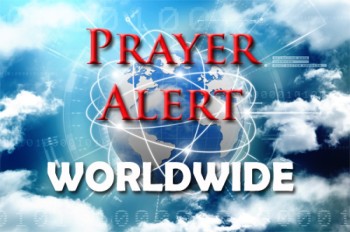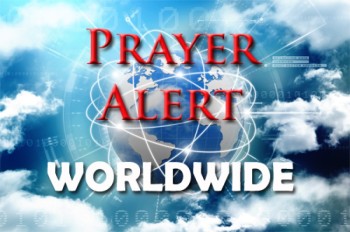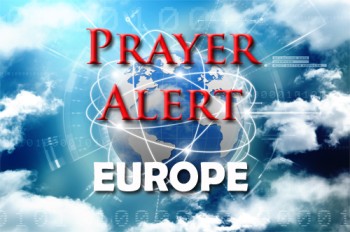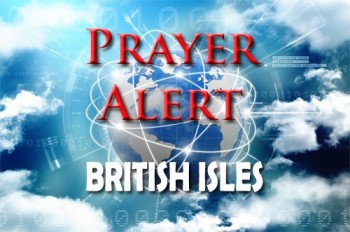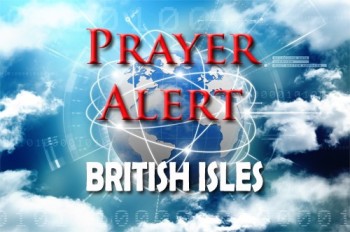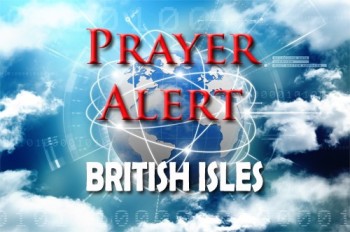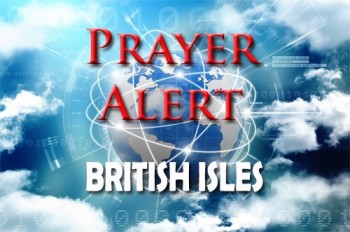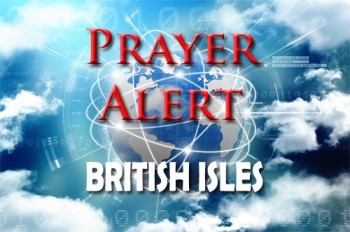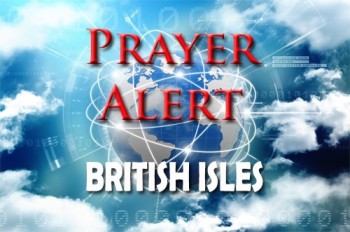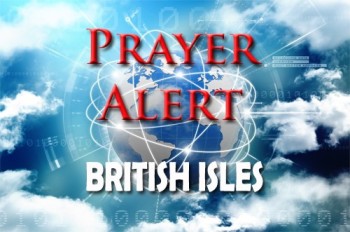Displaying items by tag: UK
Australia: vital defence pact under threat
The critical Aukus defence pact, agreed by Australia in 2021 with the USA and UK, to acquire nuclear-powered submarines, faces uncertainty as Donald Trump’s administration reviews its alignment with the ‘America First’ agenda. Valued at over $230 billion, Aukus promises Australia a strategic leap in military capability. However, some US officials are sceptical about the value of sharing its premier defence technology, and have cast doubt on allies ‘pulling their weight’. Australia's leaders are publicly calm, but anxieties are growing. Some warn that the deal was always fragile, while others urge Australia to reassess its dependence on the USA. With the Pentagon citing domestic submarine shortages and economic priorities, questions loom over whether Australia will ever receive the promised Virginia-class subs. Despite the turbulence, the alliance's strategic value in countering China remains. Experts argue that Australia could still defend itself independently, given its geography and resources, but emotional ties to the USA and fear of abandonment persist in national defence thinking.
Gaza: UK and other countries put pressure on Israel
The UK has suspended trade talks with Israel, summoned its ambassador, and imposed sanctions on West Bank settlers in response to Israel’s escalating military operations in Gaza, which foreign secretary David Lammy called ‘morally unjustifiable’. The UK has joined France and Canada in demanding an end to military expansion and a rapid influx of humanitarian aid, as Gaza faces famine due to an eleven-week blockade. Although Israel has permitted limited aid, the UN says the assistance is vastly insufficient. Lammy condemned inflammatory remarks from Israeli officials suggesting plans to ‘cleanse Gaza’ and warned that Israel risks isolating itself internationally. Meanwhile, at least 82 people including a week-old baby were killed in Israeli airstrikes on 20 May: see
Ukraine: sanctions against Iran for supplying missiles to Russia
France, Germany, and the UK have introduced new sanctions on Iran for supplying ballistic missiles to Russia, which US secretary of state Antony Blinken said will be used against Ukraine. The sanctions include restrictions on Iran Air and travel bans on military officials. UK foreign secretary David Lammy described Iran's actions as ‘a dangerous escalation’. Several individuals and organisations involved in the supply of the missiles face sanctions, and Russian cargo ships transporting these supplies have also been targeted. The Western nations have demanded that Iran halt its missile deliveries, citing security threats to Europe. Blinken and Lammy also flew to Ukraine to ‘hear directly from the leadership’ about their objectives. Volodymyr Zelensky has asked for authorisation to use Western-supplied missiles to strike targets inside Russia - a move the USA has so far resisted. Russia continues to make advances in eastern Ukraine.
Texting with Jesus
Catloaf Software’s ‘Text with Jesus’ app allows users to have real-time text conversations using Artificial Intelligence (AI) with digital Mary, Joseph apostles, prophets, and Jesus. Catloaf said technology gives new ways to interact with scripture and explore faith. Another ChatGPT based app offers ‘Biblemate’ claiming it answers any question using only the Bible and theological insights. However some Christians view this technology as heretical. Minister and technologist, Chris Goswami, welcomes the tool but emphasises that it should never be seen as Spirit-filled, highlighting the limitations of AI's spiritual understanding. Meanwhile an animal advocacy group used ChatGPT to modify Genesis with a vegan perspective, replacing animals as beings and the use of plants for clothing not animal skins. Catloaf said they’re not looking to replace traditional Bible study but to offer a tool that makes Bible narratives immediate and personal.
New oil and gas licences
Greenpeace activists unfolded 200 square metres of oil-black fabric over the home of Rishi Sunak and unfurled a banner saying ‘Oil Profits or Our Future?’ in front of the manor house, protesting against North Sea oil and gas drilling licences amidst a summer of escalating climate impacts. See Christian Aid warned the Government that issuing 100s of new oil and gas licences ‘flies in the face of climate science.’ They went on to state that ‘Now more than ever, UK’s Government must show leadership and strengthen their climate plans to protect millions in low-income countries. Instead, these wrongheaded priorities on new oil and gas licences obliterate the UK’s net-zero commitments and lets down people on the frontline of the climate crisis. The Prime Minister needs to put people and planet first.’ Pray for the government to acknowledge the calls from environmental campaigners and recognise that there needs to be an end to North Sea drilling.
Weather impact on harvesting crops
Meteorologists predict wet weather until September see, and this has a very real impact on farmers. The Farming Forum reported, ‘In this post, we shed light on the critical issues faced by farmers and their potential implications on cereal crops. Excessive rain has caused significant losses to the wheat harvest. When grains become wet and drop to the ground, they become challenging to collect efficiently. This leads to an increase in wastage and financial strain for farmers. Wet conditions make it almost impossible to harvest, so farmers must use specialised, incredibly costly headers, making it labour-intensive and time-consuming. High moisture content in wheat and grain makes it difficult to preserve quality. Cereal with 16% moisture content risks contamination by mycotoxins, a potential health risk. Moist cereal crops blown over by wind creates mould growth. This threatens the quality of the cereals and poses health risks for both humans and livestock.’
Foreign aid cuts risk hundreds of thousands of lives
A Foreign Office internal government assessment reveals poor countries are being short-changed from the £900m Overseas Development Assistance Budget as other UK government departments raid the aid budget to spend it in the UK. A £30 million cut to aid for South Sudan this year will leave 27,000 children suffering from acute malnutrition, potentially causing 3,000 deaths. Aid to that region has shrunk by 1/5th since 2017 and they are one of the frontline states suffering the hardest climate crisis - which the UK caused historically. The report also reveals that the 49% cut to UK's Pan Africa aid budget significantly impacts women's sexual health across Africa. Thousands more women will die in pregnancy and childbirth while the number of unsafe abortions will increase by about 185,000. The Foreign Office said the cuts are temporary, to meet savings targets and will increase in the future as a commitment to support Ukrainian refugees ends.
Bank of England Interest rate rise
On August 3rd, the Bank of England’s base rate rose again to 5.25%. The last time it was 5.25% was in 2008. The Bank expects inflation to fall below 5% in the final quarter of 2023, while the government pledges inflation will be 5% or below by 2024. The Bank's increase influences the cost of borrowing, making mortgages more expensive, while at the same time offering greater returns on savings accounts. The theory is that raising interest rates makes it more expensive to borrow money, so people have less to spend, reducing demand and inflation. Meanwhile, rising interest rates, higher energy costs and squeezed consumer spending have weighed on retailers with Wilko homewares now on the brink of collapse, putting 12,000 jobs at risk. They have filed a notice of intention to appoint administrators after failing to find enough emergency investment. Wilko has 400 UK stores. See
Food price cuts and theft
As food prices soar the government is discussing plans for supermarkets to introduce price caps on basic food like bread and milk to limit the rising cost of living. A voluntary agreement with major retailers could see price reductions but there are no plans for a mandatory price cap. The idea of a freeze on basic food items is said to be at the ‘drawing board stage’. Supermarkets will be allowed to select which items they would cap and only take part in the initiative on a voluntary basis. The rate of inflation can be calculated in various ways, but the main measure is the Consumer Prices Index which tracks the prices of everyday items in an imaginary ‘basket of goods’. Expensive food may overtake energy bills in the cost-of-living crisis. Security tags are being fitted to expensive food, coffee jars are replaced with dummies, and some stores are limiting the number of items on shelves to reduce theft. See
Police to attend fewer mental health calls
The Met Police will stop attending emergency mental health incidents from September, only responding if there is an ‘immediate threat to life’, thus freeing up officers untrained in mental health issues to deal with crime. The Royal College of Psychiatrists called this ‘unhelpful’. Police are concerned about ‘mission creep’ - police filling gaps left by cuts to other services. But when Robert Peel birthed the Met the police were ‘paid to give full-time attention to everyone in the interests of community welfare’. Community welfare includes the confused elderly man gone missing or the young girl in the street distressed. The Met’s plan was adopted by Humberside Police’s Right Care, Right Person scheme in 2020. Now mental health calls are dealt with by mental health professionals. It successfully improved outcomes, reduced demand on all services, and has the right care delivered by the right person.
